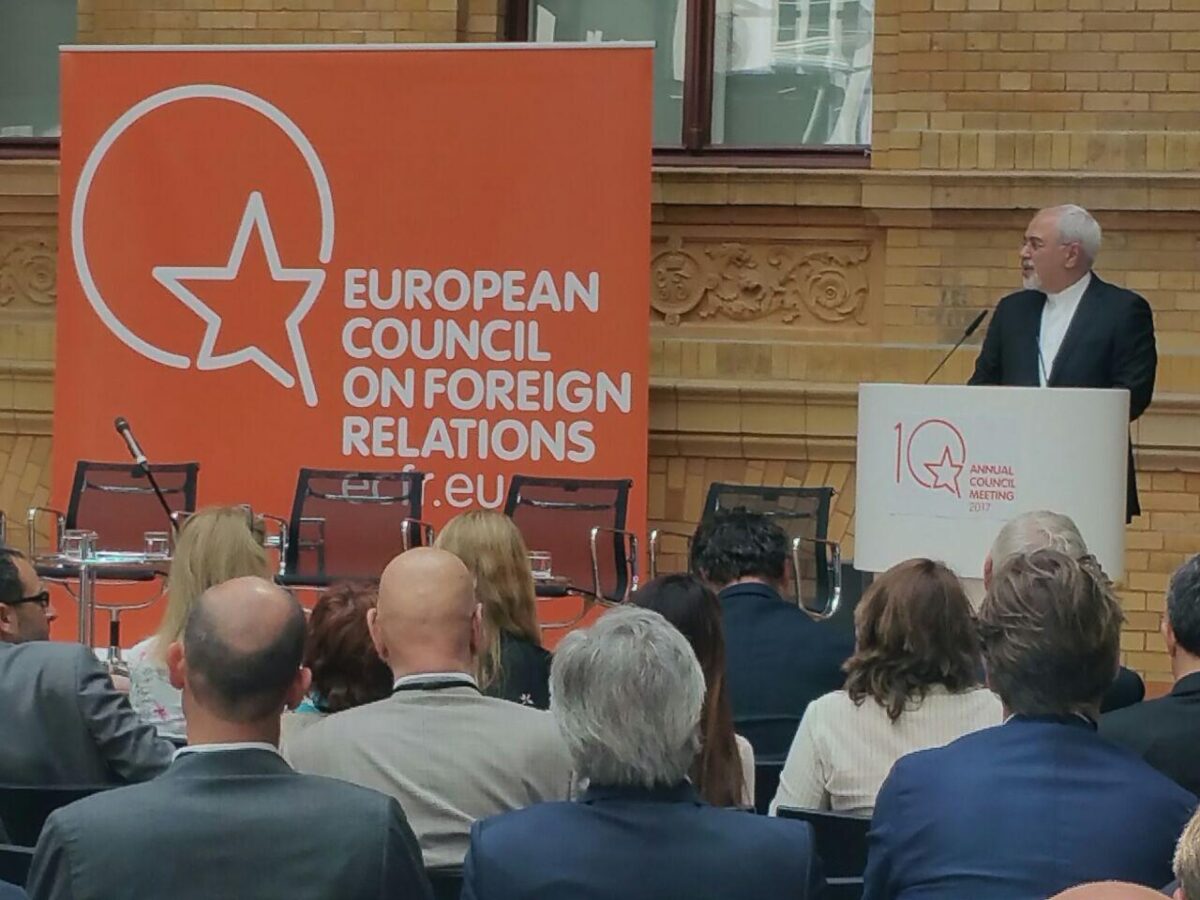Foreign Ministry Spokesman Bahram Qassemi has elaborated on the great importance of Iranian Foreign Minister Mohammad Javad Zarif’s tour of European countries.
“As you know well, Iran has had long-time and historical ties with the three major European countries, Germany, Italy, and France,” Qassemi said in an interview with IRNA.
“The ties are multilateral and established at different levels. They are not limited to politics or necessarily to economy. The three countries rank among the top European countries by different sets of indicators.”
“Meanwhile, the countries have never had any negative record in or colonial relations with Iran,” he said, adding the Islamic Republic’s relations with Paris, Berlin, and Rome have been based on reciprocal respect as well as commitment to the principle of non-interference.
It goes without saying that Iran has established different relations with each of the major countries, the spokesman added.
“Iran has had economic, commercial and industrial relations with these countries, with the industrial and economic leaders of both sides fully aware of each other and their capacities based on a practical experience,” he noted.
Qassemi went on saying that Germany, France and Italy were among the first founding states of the European Economic Community (EEC) and the European Union (EU) years later.
“The countries made considerable efforts to make Europe independent and have had a completely European view of the world,” he added.
As Mediterranean countries, France and Italy have watched more closely the regional developments of the Middle East and North Africa due to their geographical location, proximity to the Middle East, and their historical records which made them more familiar with the region, he noted.
Qassemi referred to the Iranian foreign minister’s European tour, which took him to Berlin, Rome, and Paris, saying the regional tour comes at the current sensitive time after the diplomatic apparatus felt the necessity for reviewing the latest developments in bilateral relations in various fields including politics, economy, commerce, banking, and industry and exploring new ways for expansion of ties in line with the previous talks.
“Before the unjust sanctions imposed by the United Nations Security Council, our country’s trade volume with Germany and Italy stood at about 7 billion dollars each, and our cooperation with these countries was growing at a good level. And today, there are good capacities to once again expand our cooperation,” he said.
On the other hand, Qassemi said, the need is highly felt for attracting these countries’ investments and paving the way for the visit of the trio’s economic leaders to Iran as a prelude to promoting cooperation between the two sides.
“Given their familiarity with Iran and the region, the industrial leaders of the three countries are well aware that Iran is the most stable and secure market in the region with the highest capacities for investment.”
Qassemi went on to say that they are fully aware that the Islamic Republic’s stability and security have not been achieved in return for paying millions of dollars to the world powers.
“Therefore, given the two sides’ knowledge of each other, there is a good capacity to enhance long-term cooperation between them,” he said.
He attached great importance to Zarif’s recent visits to the European countries at this time, and said the sensitive condition of the Middle East requires the regional states to join hands in fight against terrorism.
He said terrorism threatens not only the Middle East but also the Europe, and added, “This requires us at this sensitive time to hold talks and exchange views with the three major European countries.”
He referred to the Europe’s interest in the implementation of the Joint Comprehensive Plan of Action as another topic of discussion between Zarif and European officials.
“On the other hand, the European Union is now facing a threatening condition created after the UK exit from the bloc. It is now facing others challenges which we have to get familiar with through talks with the major European states,” he added.
Qassemi said France is the most important leg of Zarif’s regional tour because the foreign minister is set to meet with President Emmanuel Macron who has just recently left behind a significant parliamentary election. “The visit is of great importance for the political analysts,” he said.
“Today, Europe can rely further on an independent, self-sufficient and stable Iran. The country has proved that the region’s stability and security is at the top of its agenda and is ready to establish multilateral relations with all states without any expectation to ensure regional security and stability,” he said.
Qassemi said no multi-billion-dollar deal can bring the region security and stability and added, “Security can only be ensured by relying on the collective will of regional states and making use of their people and resources.”
The spokesman also stressed that, as the US government is challenging all international norms, establishing cooperation with independent European states can contribute to the global security and make it easier to leave behind the current crisis and tough time.
“Other states should have this point in mind that such cooperation is not against any third party,” he noted.
